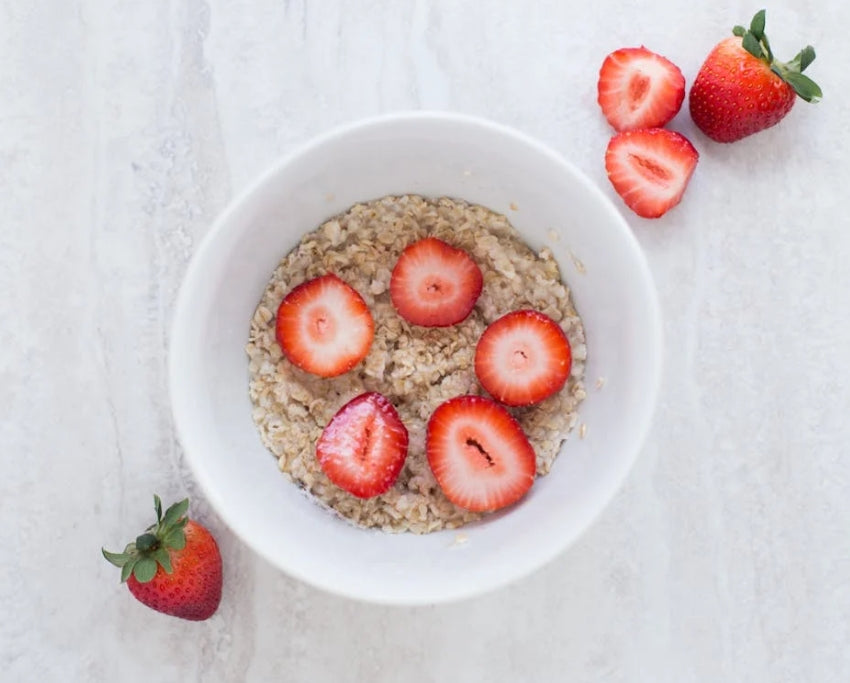So, the big question:
🤔 "Is it better to exercise in the morning or evening?"
😮 "How much does the timing of exercise really affect my workout?"
😴 "If I'm really not getting enough sleep, should I still exercise?"

Today, I'm going to clear up these questions for you.
Morning Exercise vs. Evening Exercise: Each Has Its Own Advantages
Let's start by looking at the benefits of morning workouts versus evening workouts.
Morning Exercise: Benefits All Day Long
The benefits of a morning workout can be summed up as "exercise in the morning to energize your whole day."
Here are the main advantages:
✅ Burns More Calories
Studies have compared the impact of exercising in the morning, afternoon, and evening on fat metabolism. Exercising on an empty stomach in the morning has been found to be the most effective for fat burning over the next 24 hours [1]. Some experiments have even observed an increase of up to 20% in fat burned [2].
Morning exercise also increases your physical activity levels throughout the day, setting you on a positive cycle of "the more you move, the better you feel" [3].
✅ Boosts Focus and Energy All Day
Morning exercise enhances your ability to sustain focus and energy throughout the day: experiments have confirmed that morning workouts can improve concentration, learning ability, and decision-making skills, giving your work efficiency a boost [4].
✅ Helps Control Appetite and Lean Towards Healthier Food Choices
Generally, exercise helps regulate appetite by adjusting hunger and satiety hormones (such as peptide YY and glucagon-like peptide-1, etc.). Studies have shown that exercising in the morning has a more pronounced effect on appetite regulation [3].
In a 15-week exercise intervention study for young people, it was found that morning aerobic exercise subconsciously led to healthier food choices throughout the day [5].
✅ Helps Manage Blood Sugar and Blood Pressure, Leading to Better Sleep
For individuals with Type 1 diabetes, exercise can potentially trigger hypoglycemia, but experiments have shown that morning exercise can reduce this risk [6].
Studies have also confirmed that aerobic exercise around 7 AM is most helpful for lowering blood pressure in individuals with hypertension [7]. This study also found that exercising around 7 AM can improve sleep quality (increasing deep sleep duration and reducing sleep onset time) [7].

Afternoon & Evening Exercise: Better Performance
In short, exercising in the afternoon and evening might let you "work out better."
Here are three specific points:
✅ Optimal Athletic Performance
Research has shown that physical performance peaks in the afternoon [8].
Typically, body temperature is at its highest between 2 PM and 6 PM. At this time, the body is as if it has completed a warm-up, with optimal muscle recruitment and neural control, higher oxygen intake rates, and quicker reaction times, which may result in the best fitness outcomes.
✅ Reduced Risk of Injury
With an increase in body temperature in the afternoon, neural connections become sharper, and concentration during exercise increases, significantly reducing the chances of injury. Additionally, blood pressure is usually at its lowest in the afternoon, making it a safer time to exercise.
✅ More Favorable for Muscle Growth
The secretion of the hormone cortisol, which is believed to inhibit muscle growth, begins to decrease in the afternoon. Therefore, evening muscle training is thought to yield better results.
However, I also understand that for some people, "waking up early can ruin the whole day," and any extra movement in the morning can make the rest of the day uncomfortable. For others, they might enter a "power-saving mode" in the evening and simply can't muster the energy to work out.
So, there is no universal "golden time" for exercise. The golden time is actually the time that you can most consistently stick to for your workouts.
If you're unsure whether your current exercise plan suits you, you can start by considering your needs and the type of exercise, then try and determine the most suitable plan for yourself.

Morning Exercise:
✅ Fat Loss - Fasted Morning Aerobic Exercise
It has been repeatedly confirmed that fasted aerobic exercise in the morning has superior fat-burning effects. Those looking to reduce body fat should definitely consider incorporating this into their routine; if you're too hungry, you can eat a small snack like a banana or a protein bar before exercising.
✅ Energy Boost - Morning Aerobic Exercises or Jogging
If you're a busy person, such as someone who often works overtime, you might also consider scheduling exercise in the morning when it's less likely to be interrupted. Not only does exercise increase metabolic levels, but it also leaves you feeling more energized. You can choose moderate-intensity aerobic exercises or a slow run.
✅ Sleep Improvement - Appropriate Outdoor Activities Under the Sun
If you have sleep issues, you might try outdoor activities in the early morning, getting a proper amount of sunlight, which can help regulate sleep-related hormones and establish a correct circadian rhythm.
Note: The load for fasted exercise should not be too high.
Choose a warm-up of at least 5 to 10 minutes before morning exercise to fully activate your muscles.
If you're training on an empty stomach, opt for low to moderate-intensity aerobic exercises and keep the duration within 30 minutes. Don't forget to stay well-hydrated.
Afternoon/Evening Exercise:
✅ Muscle Function Development - Strength and Functional Training
In the afternoon, body temperature and muscle efficiency are at their peak, and the levels of physiological hormones that inhibit muscle growth are lower, making it an excellent time for strength and functional training. This also reduces the risk of exercise-related injuries.
✅ Motor Skill Learning - Dance and Martial Arts Training
The motor system is more active in the afternoon, with heightened sensory engagement and neural connections, making it an ideal time to learn athletic techniques, such as dance and martial arts.
✅ Body Recovery - Gentle Yoga and Relaxation Sessions
Gentle yoga and specialized fascia relaxation sessions can be scheduled for the afternoon or evening when muscle temperature and flexibility are at their highest. This helps prevent strains and serves as a form of "active rest."
Avoid high-intensity exercise within two hours of bedtime.
The impact of evening exercise on sleep is still a subject of much debate, and many people feel that exercising at night can affect their sleep. The simplest solution is to avoid exercising right before bed. If you must exercise, refrain from high-intensity workouts at least two hours before sleep.
Remember, exercise doesn't always have to be scheduled for the morning or evening, nor does it have to take place in a gym.
For example, taking a walk after lunch, or doing some stretching or breathing exercises when you're tired from work or study, also counts as "exercise." These activities also offer benefits such as relieving fatigue and regulating hunger hormones.

Regardless of When You Prefer to Exercise, It's Best Not to Train at This Kind of Time
In the final analysis, as long as you're moving, the specific "when" is not as crucial.
But there's one thing I want to emphasize: Never sacrifice sleep time for exercise!
Sometimes, after a late finish at work, people might forgo their sleep time to hit the gym, or choose to sleep two hours less to work out in the morning.
Please, don't do that!
If we rank the three golden rules of health (eating, moving, sleeping), sleep should come first, and exercise should actually be last.
A single session of high-quality sleep can be more effective for muscle repair and growth than a workout. Exercising at the expense of sleep can not only reduce workout efficiency but might also be counterproductive to your health.
Try different routines, observe how your body responds, and find the most suitable time for you. The most important thing is to keep moving!



